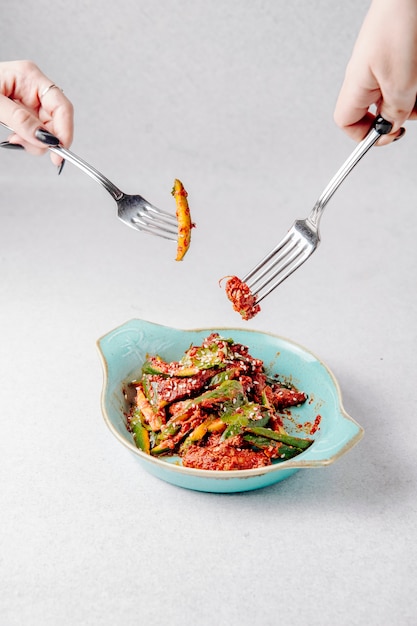
If you’re thinking of losing weight, the usual advice is to count calories and eat less. But according to Terry Fairclough, a top personal trainer and co-founder of Your Body Programme, that’s not always the way to go. Being in the fitness field, I’ve heard all sorts of opinions on the best diet for weight loss. Should we count calories? Eat low-fat, low-carb, or high-protein? Try fasting? The truth is, while these approaches can work depending on your body type, goals, and activity level, under-eating is never a good idea.
It’s a common scenario: someone decides to slash calories to get ready for beach season, and the pounds start falling off. But here’s the catch—losing weight isn’t the same as losing fat, which is typically the goal. A large calorie deficit might reduce your weight, but often doesn’t target fat.
Many people do need to cut back a bit on calories since overeating is common in the Western diet. But that doesn’t mean under-eating is the solution. When you eat, your body turns carbs into glucose, the primary energy source for cells. Any unused glucose is stored as glycogen in muscles and the liver, with each molecule holding onto water. When you cut calories, what you shed is glycogen and water—not fat. Plus, a prolonged calorie deficit actually triggers the body to hold onto fat and break down protein instead.
You’ve probably heard you shouldn’t eat fat if you want to lose it. But fat is crucial. It’s the body’s most efficient and long-lasting fuel source, providing more than double the energy of carbs or protein. Fat is also stored in muscles, ready to be used during workouts. Cutting out fat would only drain your energy reserves, making fat burning harder.
Further, restricting calories and nutrients can lead to deficiencies, impacting systems like immune and digestive health, and slowing metabolism. Under-eating can cause fatigue, malnutrition, hormonal issues, and more. Severe calorie cuts also add stress, triggering cortisol release, which initially might shed pounds but eventually leads the body to conserve energy stores, often by breaking down protein rather than fat, leading to fat gain instead.
Under-eating can also interfere with digestion and nutrient absorption, affecting workout performance and results. It can disturb sleep, which negatively impacts health and productivity.
I’ve worked with bodybuilders who reduce calories to get lean and then cycle back to normal, but improper handling can lead to illness. If calorie cutting continues, metabolic slowdown becomes a risk, making weight loss harder as the body clings to fat reserves.
Ultimately, eating the right amount of calories, carbs, fats, and proteins tailored to your specific needs is crucial. At Your Body Programme, we guide people in figuring out these needs. Eating enough without cutting calories boosts metabolism and aids in losing fat. Focus on lean proteins, healthy carbs, and fats for energy.
Remember, your goal should be a healthy, nourished body that keeps your metabolism active. Our approach has shown that increasing calories can actually help in losing fat. Prioritize lean proteins like chicken, fish, and plant-based options, alongside healthy carbs from fruits, veggies, and grains, and fats from avocados, nuts, and olive oil.